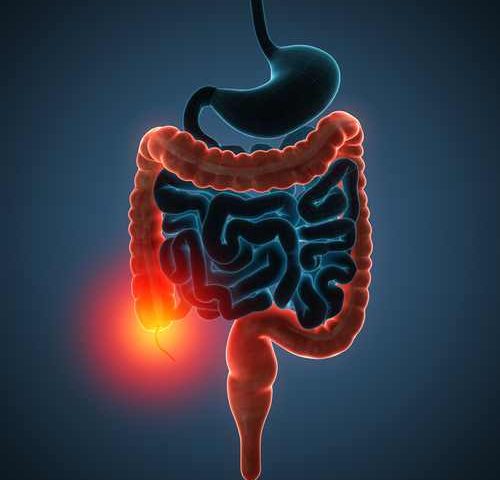AbbVie‘s Humira (adalimumab) reduces early tissue inflammation, rectal bleeding, and stool frequency in patients with ulcerative colitis, according to a post-hoc analysis of two Phase 3 trials.
Findings were published in the study, “Rapid Changes in Laboratory Parameters and Early Response to Adalimumab: A Pooled Analysis From Patients With Ulcerative Colitis in 2 Clinical Trials,” were published in the Journal of Crohn’s and Colitis.
Ulcerative colitis (UC) is an autoimmune disease characterized by inflammation of the lower gastrointestinal (GI) tract, including the colon (large intestine) and the rectum. It may start with mild symptoms that gradually worsen, with periods of remission in between.
“The European Crohn’s and Colitis Organisation guidelines recommend anti-TNF-alpa [Humira] or vedolizumab [Entyvio] as first-line biologic therapy for treatment of active UC. The efficacy and safety of adalimumab (anti–TNF-alpa) for induction and maintenance of clinical remission in adult patients with moderately-to-severely active UC were demonstrated in two randomized, placebo-controlled clinical trials, ULTRA 1 and 2,” the investigators wrote.
In this study, these researchers reported the findings of a post-hoc analysis from both of these Phase 3 trials (NCT00385736; NCT00408629) designed to evaluate the therapeutic effects of Humira in early disease features in UC patients.
The analysis included a total of 938 UC patients — 470 treated with Humira and 468 with a placebo (controls) — who had been previously enrolled in the ULTRA 1 or ULTRA 2 trials.
Early disease features included changes in laboratory parameters (albumin, high-sensitivity C-reactive protein, total protein, hematocrit, hemoglobin, and red blood cell and platelet counts), disease activity (Mayo subscores of rectal bleeding, stool frequency, and mucosal healing), and patients’ health status (Inflammatory Bowel Disease Questionnaire, or IBDQ, and Short Form 36 Questionnaire, or SF-36). For reference, the mucosa is the inner lining of the GI tract.
All laboratory parameters and patients’ health status scores were assessed from the beginning of the studies to the fourth and eighth weeks. Mean changes in Mayo subscores of rectal bleeding and stool frequency were evaluated from the study start to the second, fourth, sixth, and eighth weeks. Mucosal healing was determined by endoscopy (a procedure to examine the interior of the GI tract) at the beginning and in the eighth week.
Results showed that patients treated with Humira experienced significant improvements in laboratory parameters and in their overall health status from the start to the fourth and eighth weeks, compared with those on a placebo.
Moreover, researchers observed that patients treated with Humira had a significant reduction in rectal bleeding and stool frequency from the study start to the eighth week, compared with controls.
Endoscopy test results revealed that 13% of the patients treated with Humira had a normal-looking mucosa with no signs of inflammation in the eighth week, while only 6% of those treated with a placebo achieved the same outcome.
“In summary, this analysis demonstrated that adalimumab treatment leads to early changes in inflammatory markers and laboratory parameters that correspond with early clinical and quality-of-life measures in patients with UC. These results suggest that early response may be used to guide treatment decisions in a clinical setting,” the researchers concluded.

